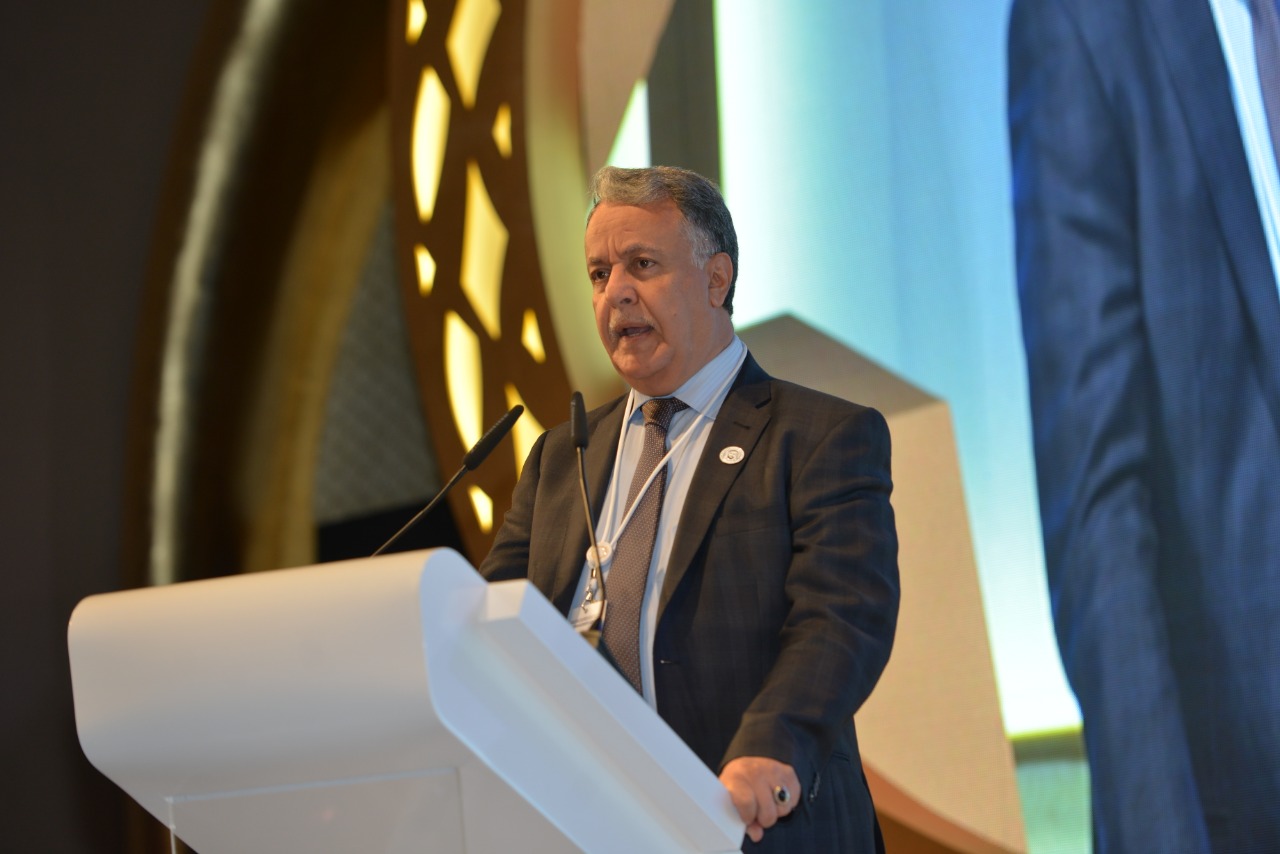
In the name of God, the Most Gracious, the Most Merciful .
At the outset, the League of Arab States would like to thank His Highness Sheikh Mohammed bin Zayed Al Nahyan, Crown Prince of Abu Dhabi and Deputy Supreme Commander of the Armed Forces, for sponsoring the common Arab vision for the digital economy. We also thank His Highness Sheikh Saif bin Zayed Al Nahyan, Deputy Prime Minister and Minister of Interior For his support and leadership of the initiative in all its details
The choice of the topic of the Arab digital economy, as the central issue of the common Arab vision, reflects the extent of awareness of the enormity of the challenges facing the Arab region in light of the pivotal role of modern technology in the development of societies and economies in general. We also believe that investing in the digital economy is our way to enhance social, economic and political stability in the Arab countries
Next, we present a set of recommendations that came out of the first conference on the Arab digital economy
First
, the digital economy can contribute more than $3 trillion to the growth of Arab GDP. Therefore, the importance of adopting the vision of the Arab digital economy for the opportunities for GDP growth for Arab countries is directly aligned with population growth in the Arab region, and with the objectives of improving the economic and social situation of our Arab peoples. Currently, the digital contribution to the economies of Arab countries does not exceed 4%, compared to 22% globally.
Second,
creating laws and legislation regulating the digital economy and policies regulating technological progress and digital transformation to ensure the inclusion of all Arab countries.
Third,
formulating flexible policies related to the components of the Arab digital economy from technological infrastructure, Fourth , related policies and legislation, governance, digital skills, finance and inter- and global capital.
Focus on the main axes of the strategy, which are digital infrastructure, digital innovation, digital governments, digital trade and the digital citizen to ensure the achievement of the 17 global sustainable development goals in various fields and sectors.
Fifth:
Harnessing all efforts to ensure a strong launch of the joint Arab vision of the digital economy by determining which countries to start and a mechanism for transfer and participation Successful models quickly among Arab countries
Sixth:
Facilitate the rapid and flexible amendment of related laws to keep pace with the rapid development in this field to build a common Arab information system available among all member states
Seventh:
Launch awareness programs and training programs to enhance the capabilities of citizens in the Arab region to deal with advanced digital technologies Eighth, strengthening the innovation and interaction system
Working in coordination with the concerned authorities to restructure education and learning in the Arab region so that it is more adaptable to the new future functions that support the concept of the Arab digital economy.
Ninth:
Success in building a common Arab digital economy, which requires a unified Arab financial system, and Arab countries must upgrade and standardize their banking systems, and financial transparency. As one of the solutions required globally to advance the digital economy
Tenth:
Creating an environment in which all forms of digital information are available to everyone, individuals and institutions, whether public or private, and at an appropriate cost, so that everyone can access the digital economy outlets to reflect on the desired well-being of Arab societies.
Eleventh:
Make all efforts to encourage the private sector to invest in the sustainable development of the digital economy, by encouraging it by using concessional financing, investment guarantees and appropriate investments, and improving the political and regulatory environment for private sector resources.
Twelfth:
Consolidating the success of joint Arab action in building a globally competitive digital economy through integration between Arab countries and concerted efforts of Arab governments in order to achieve this goal.
Last but not least, the continuous and constructive evaluation of the process of rebuilding public institutions and their legal systems is continuing to advance the roles of all Arab countries in all areas of the digital economy.
God grants success
His Excellency Ambassador Mohammed Mohammed Al-Rabie, Secretary General of the Council of Arab Economic Unity
| About | |
|---|---|
| Initiatives | |
| Knowledge | |
| Services | |
| Media Center | |
| Contact |